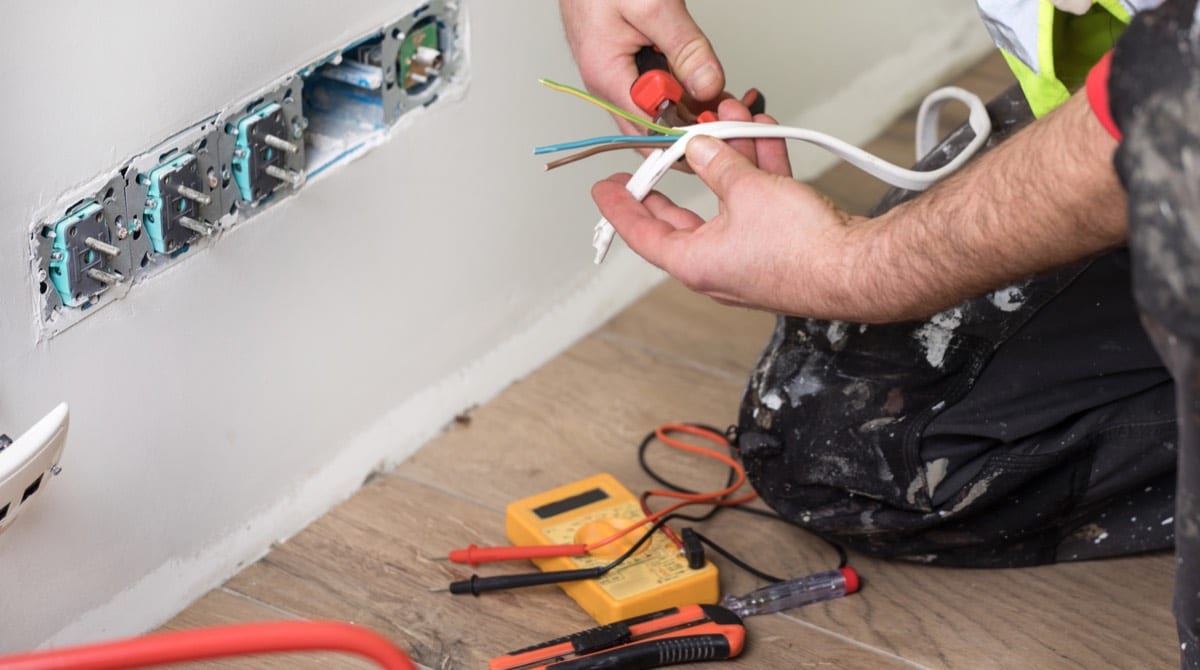Behind the scenes, electrical wiring runs behind the walls of your home powering your switches and sockets with electricity. Faulty or old electrical wiring can cause nasty accidents that damage your appliances or an electric shock to you or your family member and, in a worst-case scenario, can cause a house fire. Because you never typically see them, you may forget to think about the condition of the electrical wiring in your home until it is too late.
However, if you know the signs of wear or a hazard in your electrical wiring, you can keep an eye on them and replace your house wiring on time to protect your home from electrical issues. Read on for some common signs that your home may need replacing your electrical house wiring.
-
Smell of Burnt Wiring from Wall Outlets
If you detect an odd burning smell from an electric outlet or plug point, it may mean that your electrical wiring needs to be replaced or at least checked. Call an electrician immediately if your breaker or fuse box has such a smell. Don’t use the plug point again until a professional electrician or wiring expert has checked it out.
-
Excessive Heat/Scorch Marks
All electrical fittings should be cool to the touch. If you feel your switches or outlets heating up or see scorching marks near the switchboards, it may be time to replace the wiring.
-
Flickering Lights
Flickering lights are an annoyance, but they could also mean you have a more significant issue with your home. Flickering lights could also just be a signal voltage fluctuation caused by a heavy-duty appliance such as a washing machine. Turning on a heavy-duty appliance may cause flickering lights as it draws a more significant amount of power. On average, homes run 200 amps for their central electric system. You may have overloaded the circuit, making it malfunction. The circuit may need repairs or a replacement. You can also solve this problem by rewiring your lights to a different circuit to assure that they pull the energy effectively.
-
Circuit Breaker Trips Often
The function of a circuit breaker is to stop the flow of electricity to keep your home safe. The circuit breakers can trip when the electricity demand exceeds what is considered safe for your electrical system. If your circuit breaker trips too often, it could be because of excessive load on the electrical system or because your wiring needs changing.
-
Sparking
Sparking is never good. The fault may lie either in the appliance or in your house wiring. If your fuse box or outlet is sparking, you definitely may need to call your electrician to check it out. Never ignore sparking, crackling, or sizzling sounds that might come from your circuit breaker. However, if an appliance or fixture is sparking, you should call an appliance repair person.
-
Smoke
Again, smoke is almost always a bad sign. It could be a malfunction in your appliance or fixture that is making it emanate smoke, or it could be a problem with your house’s electrical wiring. At the first hint of smoke, switch off all appliances and check for the source. It is also recommended to switch off the main circuit breaker or that particular circuit breaker until you determine where the smoke originated.
-
Buzzing
When an electric current flows smoothly, it is silent. So it’s good news if you don’t hear anything from the outlets and switches in your home. However, if you hear a buzzing, a sizzling noise, or an occasional spark, it is more than likely a loose or damaged wire. A loose wire can produce electrical arcs. An electrical arc is when electricity jumps across the wires. You should call an electrician to find and replace/repair the wire rather than fix this problem alone.
-
Loose Connections
The connections between electrical wires, switches, and outlets may loosen with time. Keep a check on all outlet covers and switchboards to ensure that they are in good condition and that the wires inside are secure. If you find any missing wires or cracked or broken plates, you should replace them immediately.
-
Problems with Your Outlets
Regularly check your outlets for discoloration, heat, or loosening. If your outlets become loose, they may expose the wiring underneath – which is hazardous. Call an electrician if you see any signs of problems with your outlets and get them replaced as soon as possible.
When wiring is done well, you should never need to think about it again. However, if the wiring in your home is old or improper, it can pose a severe electrical hazard for you and your family. When installing electric wiring in your home, ensure you use the proper wires and equipment to avoid accidents and inconvenience.
Author Bio
Jeson Pitt works with the marketing department of D&F Liquidators and regularly writes to share his knowledge while enlightening people about electrical products and solving their electrical dilemmas. He has industry knowledge along with years of experience in the field.




